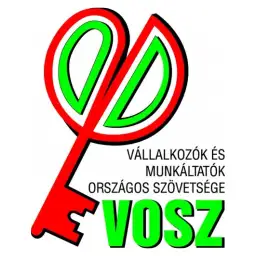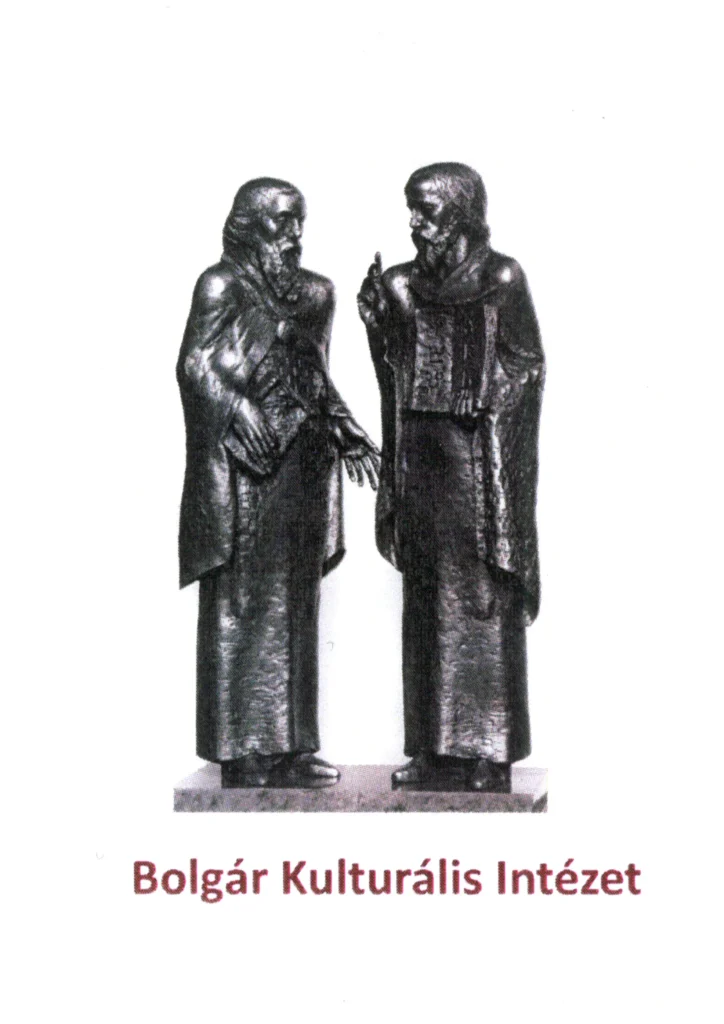The 3th Global Sustainable Fashion Week – 2018
The Global Sustainable Fashion Week, which is internationally known in the world of sustainability, was created by the National Fashion League Hungary Association from the president Gabriella Mányiné Dr. Walek’s initiative. Shortly after its launch in 2016, the #GSFW program and the closing eco fashion show was joined by almost 15 countries, followed by a similarly successful event in 2017, where Italy was the guest of honour.
The participants, both presenters and visitors, who come from all over the world, prove the GSFW’s esteem and flagship role in the eco and sustainable fashion. This global tendency is strengthened by an international governing body representing different continents and regions and by the supporters, thanks to whom both the events and their visitors are accommodated in high standard hotels, such as the unique fashion hotels of the Mellow Mood Hotels.
Beyond the relevant issues of ethical and sustainable fashion — such as ecologically conscious fabrics and using environmentally friendly technologies, zero waste and zero carbon footprint, recycling, slow fashion, fashion’s effect on the environment and climate change, the transparency of sustainability and the need for its measurement, the role of the consumers in sustainable fashion and fair trade — one of the most important topics of GSFW 2018 is social responsibility and the need for raising social awareness. This is the topic the different countries’ designers, and organizations all encompass, involving also artisant groups and the local labor force. Many of them are disabled workers or at such life situations when only this type of creative work can bring about any positive change.
We would like to highlight some interesting presenters and themes of the 3rd GSFW’s conference and fashion shows:
International fashion designer, fashion consultant and fashion choreographer &Creative design head GSFW from Pakistan Muhammad Fawad Noori will talk about social responsibility of designer and will present his fabric collection on Linearshapology: Fashion Collection of digital printed fabrics; inspiration taken from geometrical design with combination of typography and Islamic pattern’s shapes and lines.
Ahmed Zubair from Pakistan,Pakistan will talk about connecting tradition, sustainability and modern technology in menswear manufacturing. Habib Ahasan’s topic is also related to the Khadi technology, a hand embroidered, natural fabric, which leaves a zero carbon footprint. Sruthi Nagulavancha, lives in Oxford, and rethinks Indian saree fabrics made on traditional Indian looms. She makes blazers and following the idea of circular fashion and she , makes accessories using waste of theseresidual fabrics.
The artist and designer Racso Jugarap, born in the Philippines, now living in Belgium, makes rattan ties by recycling rattan waste, even taking into account the ecological aspects in the packaging and also giving jobs to the elderly women of the local community. Cristine Omollo, an excellent artist from Kenya shows how one can help those living on the periphery to have a better life by integrating them into creative work, like creating macramé, teaching them about fabrics, etc. An interesting fact is that Kenya recently banned the distribution of plastic bags. Designer Edlira Sulaj will showcase Albania’s cultural heritage in clothing, and how folklore, traditional handiwork, embroidery can be combined in a sustainable way.
The panel discussions will also include Indonesian professionals involve handickapped people in the production of eco-fabricated textiles, while Mira Indria, an Indonesian designer, will introduce her collection inspired by the traditional Indonesian “kebaya”, made exclusively from eco-materials.
Julia A. Müller is a designer living in Germany, who is designing her slow fashion brand ANNAMARIAANGELIKA in Peru, with the involvement of local artisant groups, providing a lot of families with livelihoods for producing exclusively eco/alpaca-based knit goods with the traditional manual processing. The Hungarian designer Kinga Kovács will present her project, „Vigyél színt az életedbe!” (Put colour into your life). The collection’s pieces are embroidered with colours in Braille writing, so it can be read by partially-sighted people e.. Zsófia Lengyel, a visually impaired para-athlete, partially-sighted paraathlete who is part of the Hungarian National Team also took part in the project. She is also the face of the 3rd GSFW, and a member of the National Fashion League Hungary’s Ability Fashion Team.
The director of Mod’Art, Réka Szentesi, who is the marketing manager of the Hungarian Fashion Revolution, will talk about the importance of transparency in fashion, in connection withto the topic of social responsibility. In the panel discussion, Lilla T. Erdei, a lace researcher, will present old Hungarian laces, and Nelli Molinari will showcase her precious metal jewelry made from lace.
Dr. Monika Zabel, a designer living in the USA and Germany will talk about the correlation between ethics and sustainability. She finds it important that eco fashion be represented in the arts and luxury category. She will be showing her capsule collection within the Urban Pilgrims project, for which she got the Rucka Artist in Residence Award in 2017, in Latvia. Dr. Jocelyn Chen from Taiwan will talk about the relationship between designing and sustainability. The professor is the director of the Department of Textiles and Manufacturing at the Fu Jen Catholic University. This university has made it to the top ten fashion universities in the world.
A senior advisor of the GSFW, Vittorio Giomo, who has also joined UNFCCC Climate Action in Fashion Dialogue’s platform, will talk about ‘the fashion industry and climate change’, which is this year’s main topic.
Heiðrún Ósk Sigfusdottir who is an Icelandic entrepreneur, well-known environmental activist and founder of the Icelandic conscious style Dimmblà, will in her talk call the attention to conscious consumer behavior; examine how consumers’ habits affect climate change and campaign for the reduction of plastic usage. Moreover, with every piece sold from Dimmblá a donation goes to Landvernd and Oceana, an international organization that protects the world’s oceans. Nelly Hayek’s presentation will also be of interest, as Sweden is putting serious effort into environmental protection and sustainability. She will represent the Swedish city of Borås, as well as the European Textile Collectives Association. She believes that social cohesion is indispensable not only on an individual level, but on a city and government levels as well.
Tamás Krain, from Innovatex Zrt. wWill describe the Expert Network on Textile Recycling, an EU project known as ENTeR. The project’s main goal is to promote innovative solutions for waste management that will result in a circular economy approach to textile production. Its partners come from five Central European countries and want to highlight the need for the management and optimization of waste, in a Life Cycle Design (or Ecodesign) perspective.
The event’s main professional sponsor was the Italian RadiciGroup, a leader in sustainability and the Chief Adviser of the GSFW, Vittorio Giomo explained about their achievements in the circular economy and about the importance of measuring of the LCA (Life Cycle Assessment) in the sustainable fashion which Radici Group highly advised us to use.
It is for the first time in 2018 that Russia will be present at the GSFW with Olga Johnson Antonova, who is a designer and curator and works in linking sustainable fashion and the arts. With her recommendation will introduce herself Julia Neva a Russian designer from Saint Petersburg, whose recycled collection is inspired by her love for the Neva River and the eastern philosophy.
Some of the designers will present themselves at the conference on 12th April at, or with a full collection at the international fashion show on the 13th April. . As currently Bulgaria is carrying the Presidency of the European Union, the opening of GSFW will be combined with a press event on 11th 1 April by the Bulgarian Cultural Institute, together with an exhibition of Dilyana Bozadzhieva’s merino wool paintings, as well as Albert Baruch’s and Emil Yordanov’s fashion photography. Two Bulgarian fashion designers Kalina Kuzmanova , the founder of the Balkan Fashion Week, and Elena Alexy, the founder of the Balkan Fashion Week, along with the disabled members of the Ability Fashion Team , will be also introduced at the integrated eco fashion show?—?along with the disabled members of the Ability Fashion Team?—?held in the Millennium Centre on 13th April, 2018 at 19.00. in the Millenium Centre. The works of the following designers will be presented as well: Christina Omollo (Kenya), Juliya Neva (Russia), Mira Indria (Indonesia), Ágnes Krivanics, Ági Szépligeti, Adrienn Körtvély.
Speakers
IMPORTANCE OF THE SOCIAL RESPONSIBILITY, EQUALITY FOR A BETTER SUSTAINABLE FASHION WORLD
Edlira Sulaj, Albania
Cultural heritage in our casual clothing
Trigo Neo Starden, Indonesia
Workforce From Disabilities Empowerment with Education
Fawad Noori
Season 3rd (“Linearshapology”: Fashion Collection of digital printed fabrics; inspiration taken from geometrical design with combination of typography and Islamic pattern’s shapes and lines)
Sruthi Nagulavancha, India: Suvemaa
Weaving for Good
Lilla T. Erdei, a lace researcher and Nelli Molinari metal lace jewelry designer, Hungary
Precious Metal Lace from Hungary
Kovács Kinga, Hungary
Put colour into your life – collection for visually impaired persons
Ágnes Jánosi, Rumania
ACTIVEism in fashion, Light Design & Multifunctionality
Éva Gászpor
Transylvanian Textile and Design Cluster for the sustainable and circular fashion
Racso Jugarap, Belgium/Philippines
How We Made Someones Garbage into Something Beautiful
Julia A. Müller, Germany
Slow Fashion, handmade in Peru – The lasting joy of fair and timeless quality
Panel discussion about the responsibility of the designers in the sustainable and ethical fashion
Dr. Gabriella Mányi Walek, President of GSFW, Hungary
Fawad Noori, Pakistan, Creative design head GSFW, Pakistan
Julia A. Müller, Fouder of ANNAMARIAANGELIKA, Germany
Juliya Neva, designer for upcycling from Russia
Representative of the Indonesian Diaspora Network
CHALLENGES IN THE SUSTAINABLE FASHION INDUSTRY
Réka Szentesi, Fashion Revolution Hungary
Fashion Revolution – for a more transparent fashion industry
Jocelyn CHEN, Taiwan
A Design Approach towards Sustainable Fashion, Director of Fashion Design Section at Department of Textiles and Clothing, Fu Jen Catholic University, Taipei
Nelly Hayek, City of Borås /ACTE, Sweden
The city of Borås reboot in the textile fashion and innovation
Olga Johnson Antonova, Regional Director and Advisor to GSFW, Russia
Fashion Sustainability Landscape in Russia
Tamás Krain, Innovatex Zrt.
Expert Network on Textile Recycling, a step toward a sustainable textile industry
Vittorio Giomo, Italy: Chief Advisor to GSFW
Report on UNFCCC Dialogue on Fashion and Climate Action
Heidrun Osk Sigfusdottir, Founder of Dimmblà, Iceland
The critical actors in growing sustainable consumption are the consumers themselves
PANEL DISCUSSION
Moderator: Dr.Monika Zabel, Managing Director, crossxculture consulting, Hamburg / New York: Ethics and Sustainability in Fashion – the New Luxury
Fashion Show
Integrated Fashion Show with the participation of the Ability Fashion Team. Organizer of the fashion show: István Hornyák.
Kalina Kuzmanova and Elena Alexy (Bulgaria)
Christina Omollo (Kenya)
Juliya Neva (Russia)
Mira Indria (Indonesia)
Krivanics Ágnes and Szépligeti Ági (Hungarians from London)
Körtvély Adrienn (Hungary)
Designers on Display
Dilly Bozadzhieva – paintings and design made of merino wool
Albert Baruch and Emil Yordanov – Fashion Photography
Venues
Bulgarian Cultural Institute
Budapest Chamber of Commerce and Industry
La Prima Fashion Hotel
Millenium Center Budapest
Sponsors







